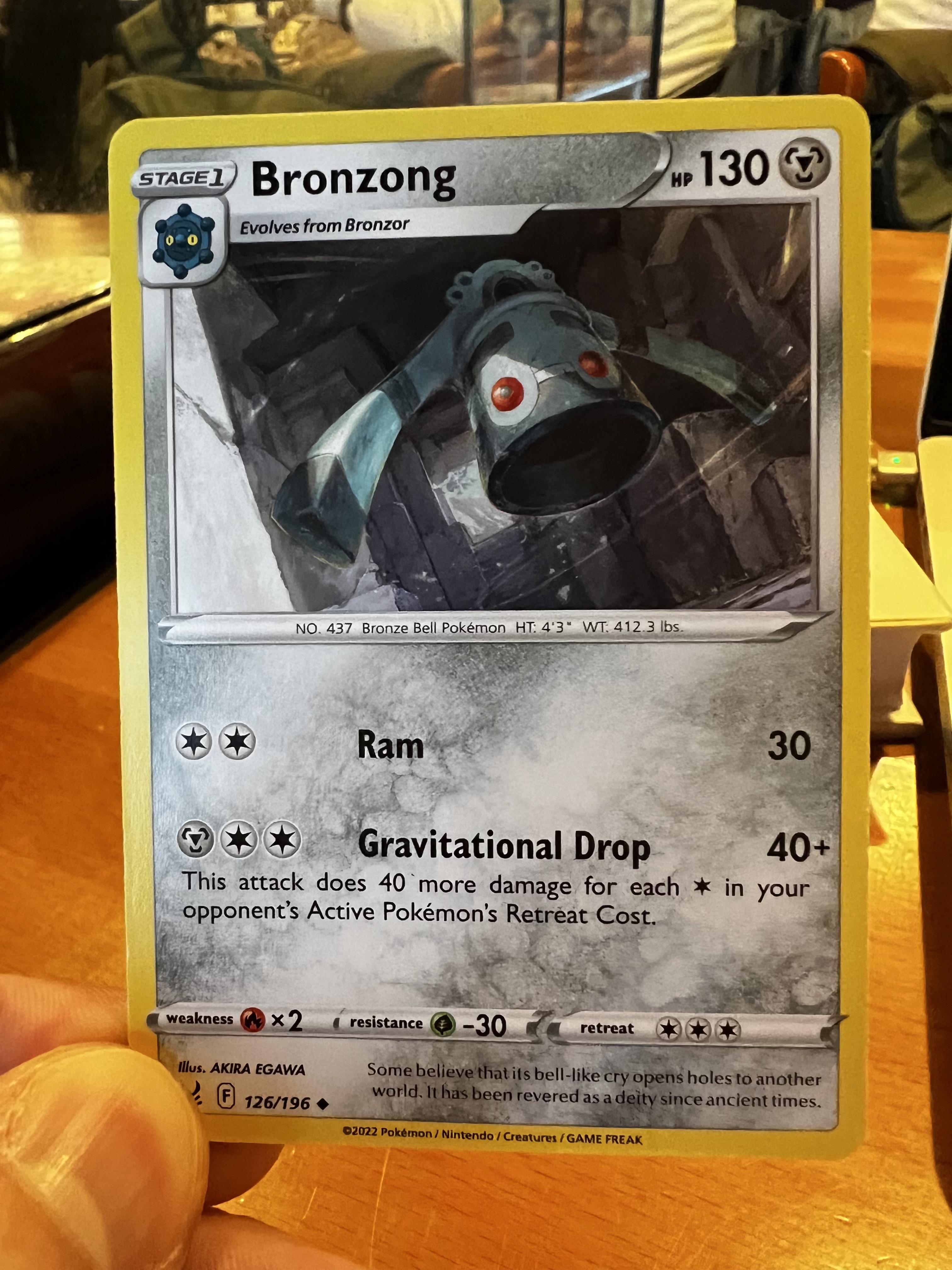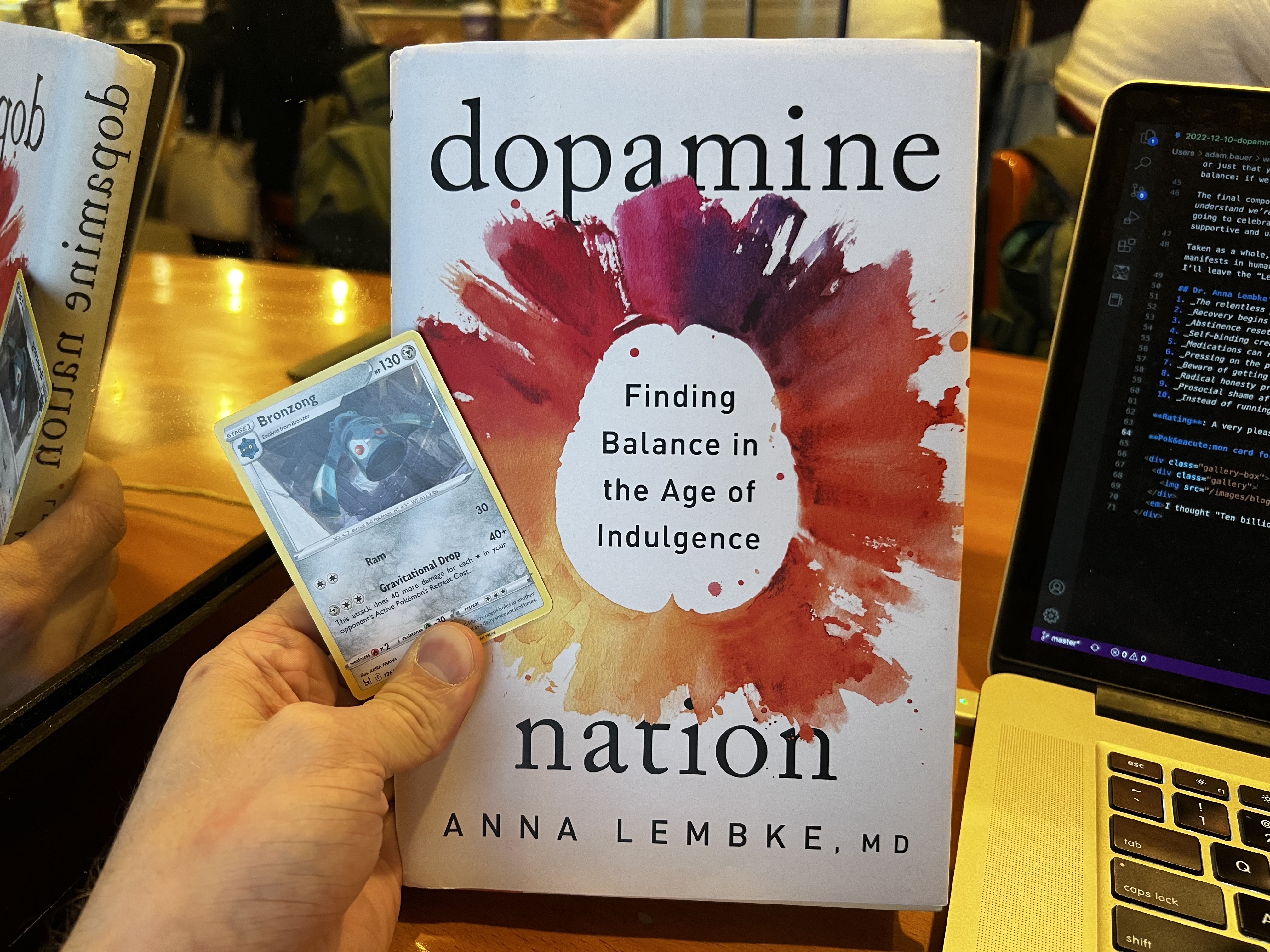We spend a lot of time consuming, and I don’t just mean consuming food or water to survive. We consume everything, from advertisements, TikToks, tweets, television, news, online shopping, romance novels… the list really is endless. Being constantly attached to our devices has caused us to basically live in a Skinner box, all day, every day.
This reality is what Dr. Anna Lembke describes as the “age of indulgence” in her book, Dopamine nation: Finding balance in the age of indulgence. Merging powerful stories from her clinical practice, personal vulnerability, and insights from the latest psychology research, Dr. Lembke lays out why we over consume, how it impacts us, and what we can do about it.
The hallmark feature of Dopamine nation is Dr. Lembke’s ability to contextualize scientific insight within personal narrative. Many books with similar scope to Dopamine nation lean heavily into the scientific component of addiction and consequently lose the personal component. While an undeniably important contribution, the themes of these works can often be lost on readers who are looking for help and insight, rather than just the facts of addiction. Suffice to say, people picking up books on over indulgence are looking for more than just information on the default mode network of the brain.
The trouble is that when we overindulge in pleasure, Dr. Lembke explains, we throw off our pleasure-pain balance. This causes two pressing issues.
The first is that we need more and more pleasure to feel an average amount of pleasure. In other words, we adapt to our new baseline pleasure level, and need more and more pleasure to reach the same highs we used to feel before we adjusted. (Though Dr. Lembke doesn’t mention it by name, this observation reminded me of the hedonic treadmill, where we quickly adjust to new norms in happiness, leading us to continually want more and more.)
The second issue is that when we have prolonged periods of intense pleasure, our bodies react by feeling pain as a way to balance out the pleasure-pain balance. This idea is a key tenet of opponent-process theory. As they say, what goes up must come down.
The solution to the issue of overindulgence is not to stop consuming entirely. After all, consuming is an unescapable part of life. (Unless, maybe, you’re a Buddhist monk living in a cave. But even then, aren’t you still “consuming” the benefits of meditation and isolation?)
Rather, Dr. Lembke argues, the solution is balance.
Finding balance isn’t easy, but some tangible steps can be taken. In particular, Dr. Lembke talks about self-binding and, if necessary, taking medication.
These two pillars of balance – self-binding and medication – provide important guardrails against compulsive consumption.
I can provide a personal example of self-binding and how it’s helped free me of overindulgence and consumption. I used to impulsively check email on my phone. When graduate school application season came around, I would check email once every 10–15 minutes for decision emails. It was incredibly stressful. Every 10 minutes I was asking: will I get into Stanford? Or Princeton? Or UChicago? (The eventual answer to all three of these questions was no, by the way.)
Once I realized the toxicity of my email checking, I took the step to delete email off my phone. This put up a physical barrier between me compulsively checking email. If I wanted to check email, I’d have to take out my laptop, log on to email, do the stupid two-factor authentication thing, and then, at long last, check my email. All together, this is probably a 3–5 minute process.
The magic of self-binding is by the time I’ve pulled out my laptop, I’ve already had a moment to think: OK, do I really want to check email right now? More and more, I started reaching for my laptop, realized what I’m doing and how it’ll make me feel, and stopping myself. Over time, I lost the drive to check my email compulsively, a miracle compared to what my old pattern was. I still don’t have email on my phone today.
In addition to self-binding, medication can also help self-regulate the brain’s reward cycle. From reading Dopamine nation, it seems this approach is suitable for those who are struggling with chronic addiction to particular substances, such as opioids and alcohol.
The last part of Dopamine nation describes how we can reset our pleasure-pain balance and live more fulfilled lives.
The first component is to push more on the pain side of the pleasure-pain balance. The upshot here is, given that when we overindulge in pleasure the body naturally responds with pain (see opponent-process theory above), the converse is also true. When we take a cold shower, putting up with the pain can be an intensely pleasurable experience.
The second is being radically honest. Inseparable from this point is being vulnerable about our struggles. Being honest – whether it’s about deep personal issues or just that you’re having a bad day – is hard, and often takes real vulnerability. But honesty is part of “pushing on the pain side” of the pleasure-pain balance: if we can be vulnerable and really lean into our pain, we can be better for it and get the help we need.
The final component is seeking prosocial shame. Not to be confused with “shaming” someone, prosocial shame is the kind of shame that we feel when we mess up, but understand we’re in a community that still supports us through it. This is the process of admitting a relapse in Alcoholics Anonymous, Dr. Lembke describes. No one in AA is going to celebrate the relapse, far from it. But no good member of AA is going to tell the relapsing alcoholic that they’re a horrible person. Rather, they’ll be supportive and understanding of their struggle, while emphasizing that they do not condone drinking in AA.
Taken as a whole, Dopamine nation was a lovely read. I enjoyed how Dr. Lembke intertwined science and narrative, painting a clear picture of how science manifests in human experience. I’d recommend it to anyone who wants to learn more about how overindulgence changes their brains, and how they can reset themselves. I’ll leave the “Lessons of Balance” here for posterity:
Dr. Anna Lembke’s Lessons of Balance
- The relentless pursuit of pleasure (and avoidance of pain) leads to pain.
- Recovery begins with abstinence.
- Abstinence resets the brain’s reward pathway and with it our capacity to take joy in simpler pleasures.
- Self-binding creates literal and metacognitive space between desire and consumption, a modern necessity in our dopamine-overloaded world.
- Medications can restore homeostasis, but consider what we lose by medicating away our pain.
- Pressing on the pain side resets our balance to the side of pleasure.
- Beware of getting addicted to pain.
- Radical honesty promotes awareness, enhances intimacy, and fosters a plenty mindset.
- Prosocial shame affirms that we belong to the human tribe.
- Instead of running away from the world, we can find escape by immersing ourselves within it.
Rating: A very pleasurable read.
Pokémon card for this book: Bronzong, a strong steel type for the strong, now-sober folks mentioned in the book. :)




